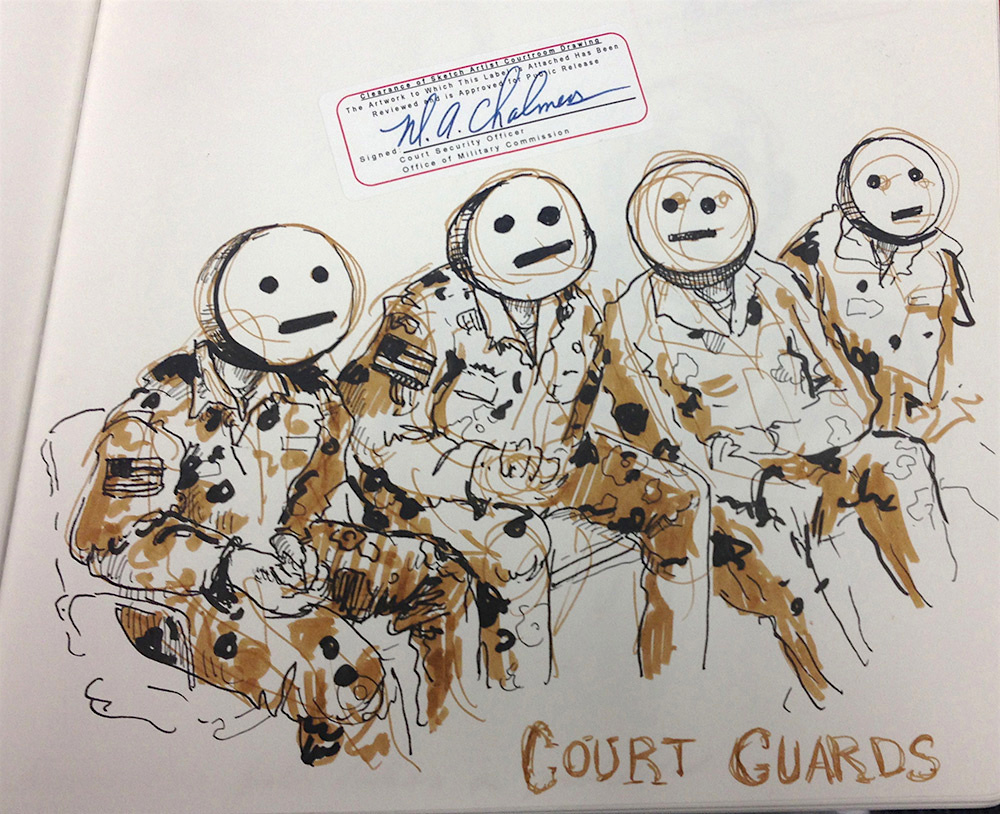Convicted Guantánamo Prisoner Ali Hamza Al-Bahlul Seeks An End to His 14 Years of Solitary Confinement

Please support my work as a reader-funded journalist! I’m currently trying to raise $2500 (£2000) to support my writing and campaigning on Guantánamo and related issues over the next three months. If you can help, please click on the button below to donate via PayPal.
Does anyone even remember Ali Hamza al-Bahlul?
14 years ago, on November 3, 2008, the day before Barack Obama won the 2008 presidential election, Ali Hamza al-Bahlul, a 39-year old Yemeni, who had been held in the prison at Guantánamo Bay since he arrived on the first flight into the prison on January 11, 2002, received a life sentence in his military commission trial, for which he had refused to mount a defense, and has been held ever since in solitary confinement.
That ought to be a shocking situation, but uncomfortable truths tend to be swallowed up in Guantánamo, and al-Bahlul’s apparently endless solitary confinement has been largely forgotten.
Videos of ‘Guantánamo: 20 Years After’, the Brighton University Online Conference on Nov. 12-13, 2021

Please support my work as a reader-funded journalist! I’m currently trying to raise $2500 (£2000) to support my writing and campaigning on Guantánamo and related issues over the next three months. If you can help, please click on the button below to donate via PayPal.
With just twelve days to go until the 20th anniversary of the opening of the prison at Guantánamo Bay, this would seem like a good time to make available some of the videos from ‘Guantánamo: 20 Years After’, the online conference on November 12 and 13, hosted by the University of Brighton, which I helped to organize.
The conference featured two keynote speakers (myself and former prisoner Shaker Aamer, standing in at the last minute for Mohamedou Ould Slahi), guest speakers Mansoor Adayfi (another former prisoner) and Antonio Aiello (who worked with Mansoor on his memoir, Don’t Forget Us Here, published this summer), ten academics delivering papers, and three panel discussions.
I posted a report about the conference just after it had taken place, although at the time videos of the presentations weren’t available, so I’m delighted to be able to present them now for those of you who weren’t able to attend the conference — or even for those of you who were, and will appreciate seeing them again.
Guantánamo Lawyer Michel Paradis: Military Commissions are Based on Legal Apartheid
 Please support my work! I’m currently trying to raise $2500 (£2000) to support my writing and campaigning on Guantánamo and related issues over the next three months of the Trump administration.
Please support my work! I’m currently trying to raise $2500 (£2000) to support my writing and campaigning on Guantánamo and related issues over the next three months of the Trump administration.
I wrote the following article for the “Close Guantánamo” website, which I established in January 2012, on the 10th anniversary of the opening of Guantánamo, with the US attorney Tom Wilner. Please join us — just an email address is required to be counted amongst those opposed to the ongoing existence of Guantánamo, and to receive updates of our activities by email.
Here at Close Guantánamo, we have been campaigning since our founding over five years ago to close the prison at Guantánamo Bay, Cuba, because, as we explain in our mission statement, “Guantánamo harms our nation every day it stays open, and it continues to serve as a potent symbol for terrorist recruitment. Guantánamo also undermines our bedrock commitment to the rule of law, making that fundamental principle less secure for all Americans.”
In practical terms, most of our opposition to Guantánamo’s existence has focused on the injustice of indefinite imprisonment without charge or trial. During President Obama’s last five years in office, we persistently encouraged him to release the men unanimously approved for release by high-level, inter-agency government review processes, including the Periodic Review Boards. These began in November 2013, but their deliberations ended up dominating much of the discussion about Guantánamo in his last year in office.
However, we also recognize that, while failing to charge prisoners with crimes and to put them on trial, or to treat them as soldiers and to hold them according to the Geneva Conventions, is an inexcusable derogation from internationally accepted norms regarding imprisonment, the situation for those facing trials at Guantánamo is, fundamentally, no better. Just ten of the 41 men still held are facing, or have faced trials in the military commission system launched under George W. Bush in 2001, revived by Congress in 2006 after the Supreme Court ruled it illegal, and — ill-advisedly — revived again under President Obama in 2009, but the system remains unfit for purpose, and a betrayal of US values. Read the rest of this entry »












 Who's still at Guantánamo?
Who's still at Guantánamo?
